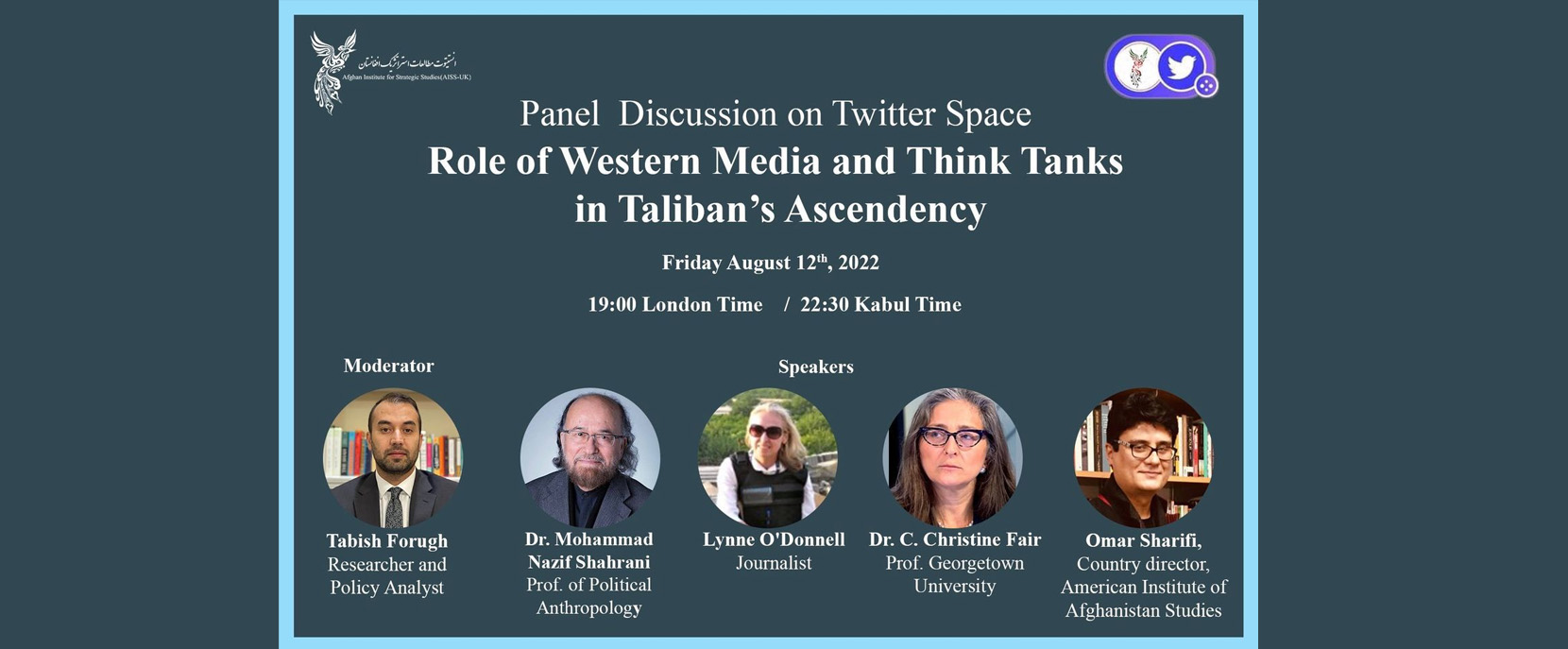
On August 12, 2022, Afghanistan Institute for Strategic Studies (AISS) hosted a panel discussion on Twitter Space on the “Role of Western Media and Think Tanks in Taliban’s Ascendency” with Dr. Mohammad Nazif Shahrani, Professor of Political Anthropology, Lynne O'Donnell, Journalist, and Dr. Omar Sharifi, Country director of American Institute of Afghanistan Studies. The panel was moderated by Tabish Forugh, Researcher and policy Analyst.
Panelists discussed historical, political and academic dimensions of pro-Taliban’s narratives and how international media and think tanks in the west are promoting, stabilizing and presenting Taliban as a transforming political group in the region. Dr Sharifi argued that the real voice of Afghans in definition of Taliban is missed. There is a gap in definition of Taliban from the perspectives of Afghans who lived and experienced Taliban and those who defined Taliban from policy perspective and see this group as a project. He emphasized on producing more Afghan’s indigenous knowledge.
Donnell stated that there is a cohort of journalists and academics who wanted to be a part of bringing an end to the war and that they flattered themselves with their association with Taliban figures. She argued that the worldwide media in particular, the American media is mainstreamed and is very much beholden to the prevailing policy which is whitewashing the realities and also a way of trying to buy into a peace dividend.
Dr Shahrani discussed the issue of relationship between Afghan governments and academics/ scholars. He argued that in the process of producing knowledge, Afghan native scholars as well as the younger generation of Afghan scholars were ignored by government and also foreign think tanks. Dr Shahrani stated that during the last 20 Years, there was plenty of favorable rather than critical narratives created about the regimes.
A summary of key findings of the roundtable will be released in due course.
